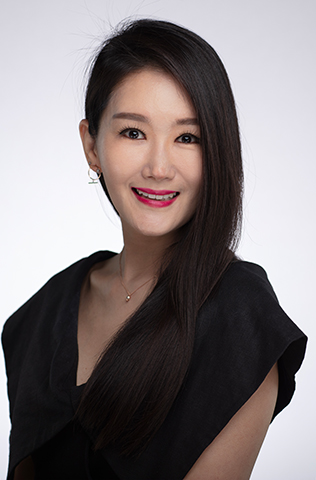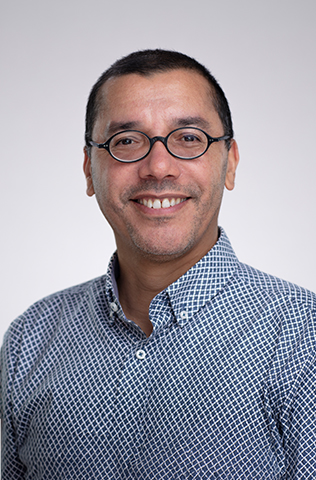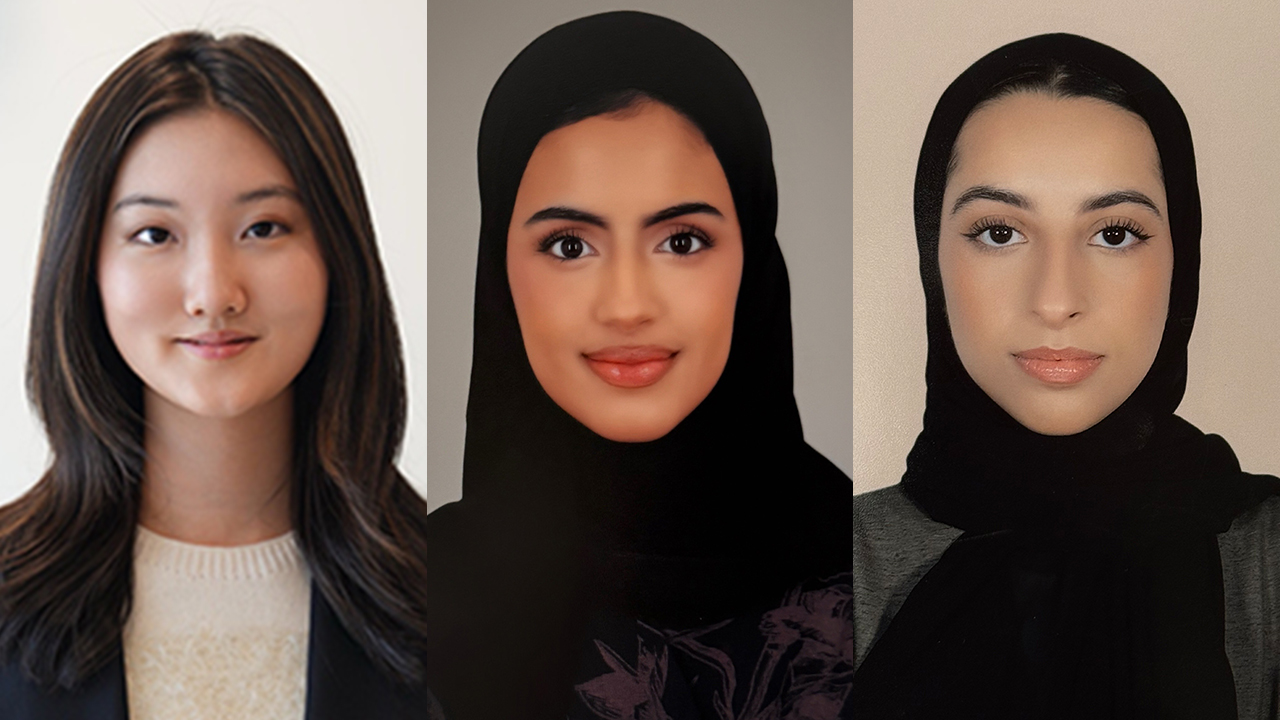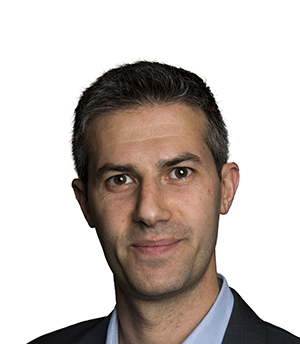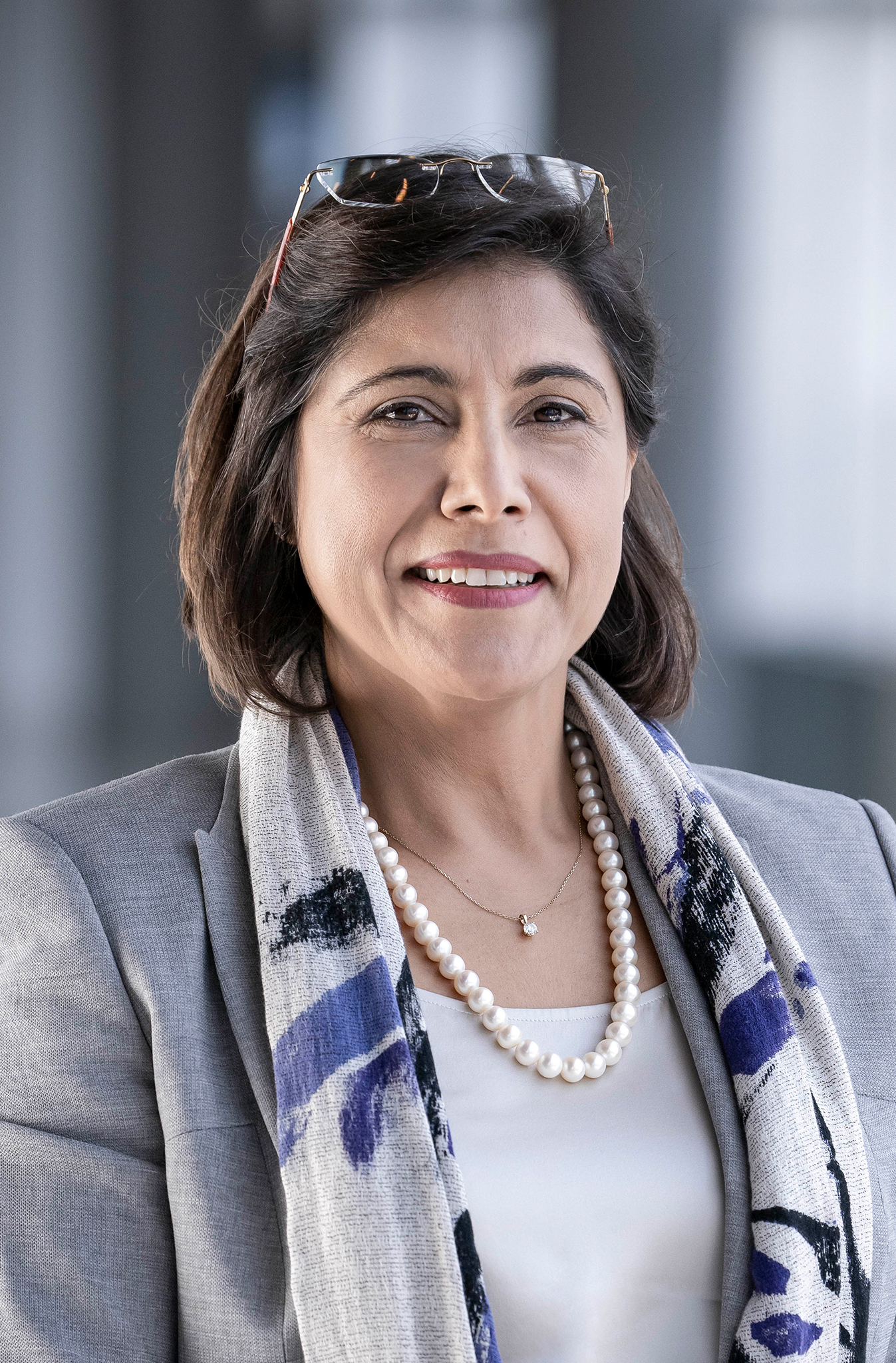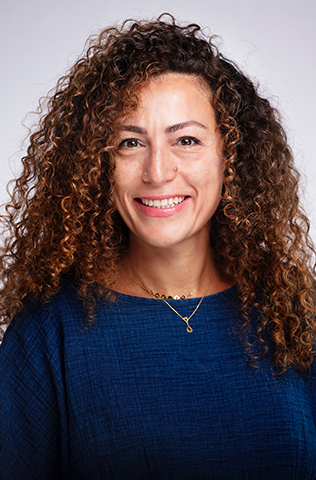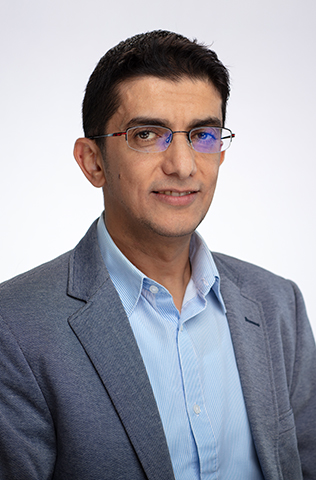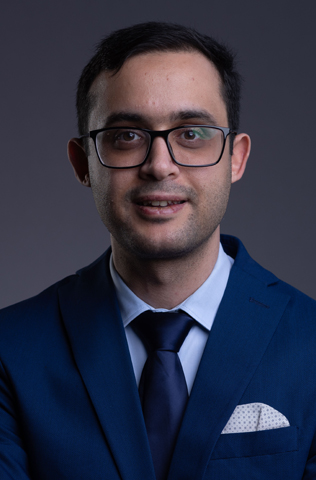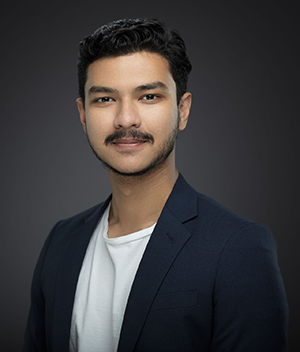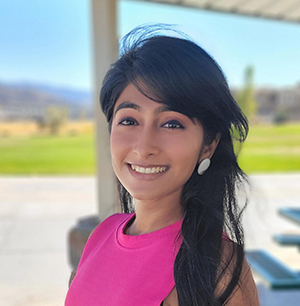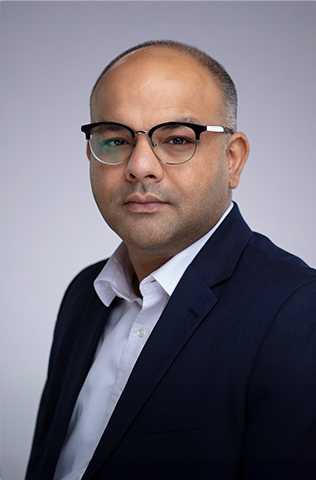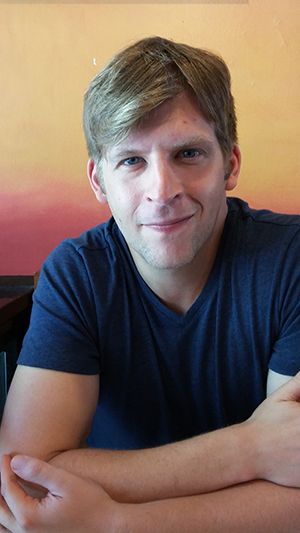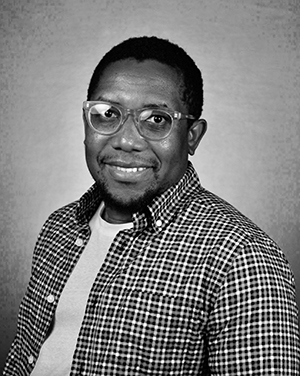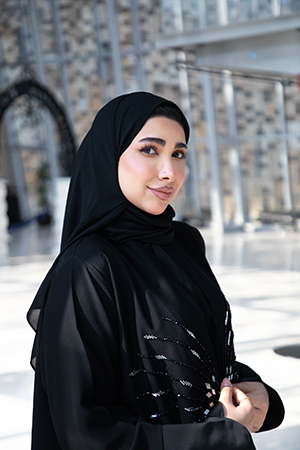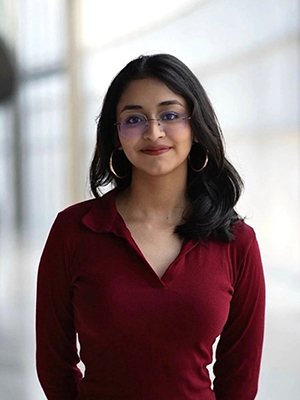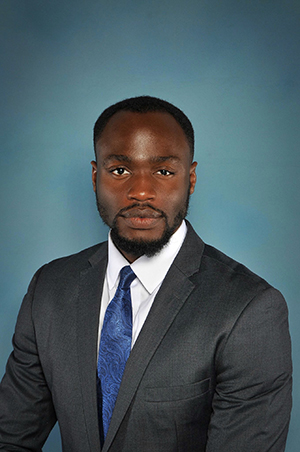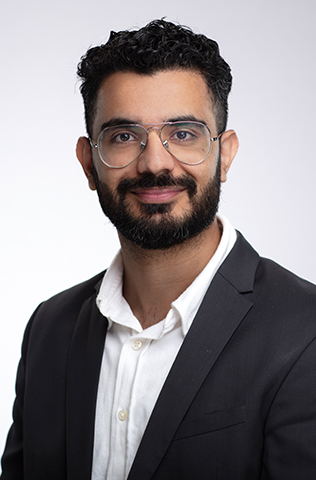Program
Monday, September 1, 2025
Dean's Opening Remarks
9:00 - 9:20 a.m.
Marwan M. Kraidy (Dean and CEO, Northwestern University in Qatar)
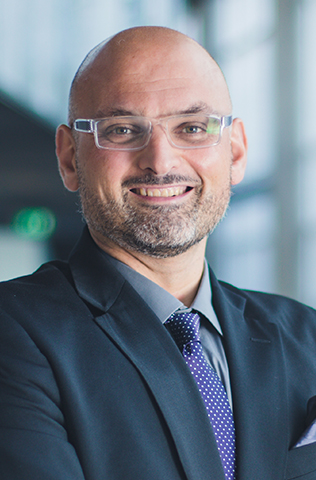
Biography
Marwan M. Kraidy is dean and CEO of Northwestern in Qatar, where he oversees all academic, administrative, and operational units. Kraidy founded the Institute for Advanced Study in the Global South, which hosts multidisciplinary teams of faculty and students dedicated to evidence-based storytelling on the diverse histories, cultures, societies, and media of the Global South. The Institute hosts fellows, mentor emerging scholars, and produce multi-lingual and multi-modal outputs. The Artificial Intelligence Initiative is Kraidy’s second strategic flagship initiative focused on meeting the global challenges of artificial intelligence and making decisive contributions to research, teaching, and professional development in that area.
Positioning Remarks
[Theme #1 Shaping The AI-Empowered Future]
Humane AI Starts Here: Humane AI Ecosystem and Collaborative Intelligence for a Technology-Empowered Future
9:20 - 9:50 a.m.
S. Venus Jin
Associate Dean for Education, AIM-Lab Director
Biography
At Northwestern University in Qatar, Jin has served as Professor of Digital Media Studies since 2019 and as director of the Communication Program from 2022 until 2023. Since 2024, she has served as associate dean for education and founding director of the Artificial Intelligence and Media Lab (AIM-Lab). She has led NU-Q’s AI Initiative and launched NU-Q’s new Artificial Intelligence and Media minor. Jin is committed to interdisciplinary research on transformative artificial intelligence (AI), AI-driven digital marketing, personal branding, and consumer behavior. She is a Fellow of the International Communication Association.
[Theme #1 Shaping The AI-Empowered Future]
AI-Augmented Scholarly System
9:50 - 10:20 a.m.
Noshir Contractor
McCormick School of Engineering, Kellogg School of Management, School of Communication, Northwestern University
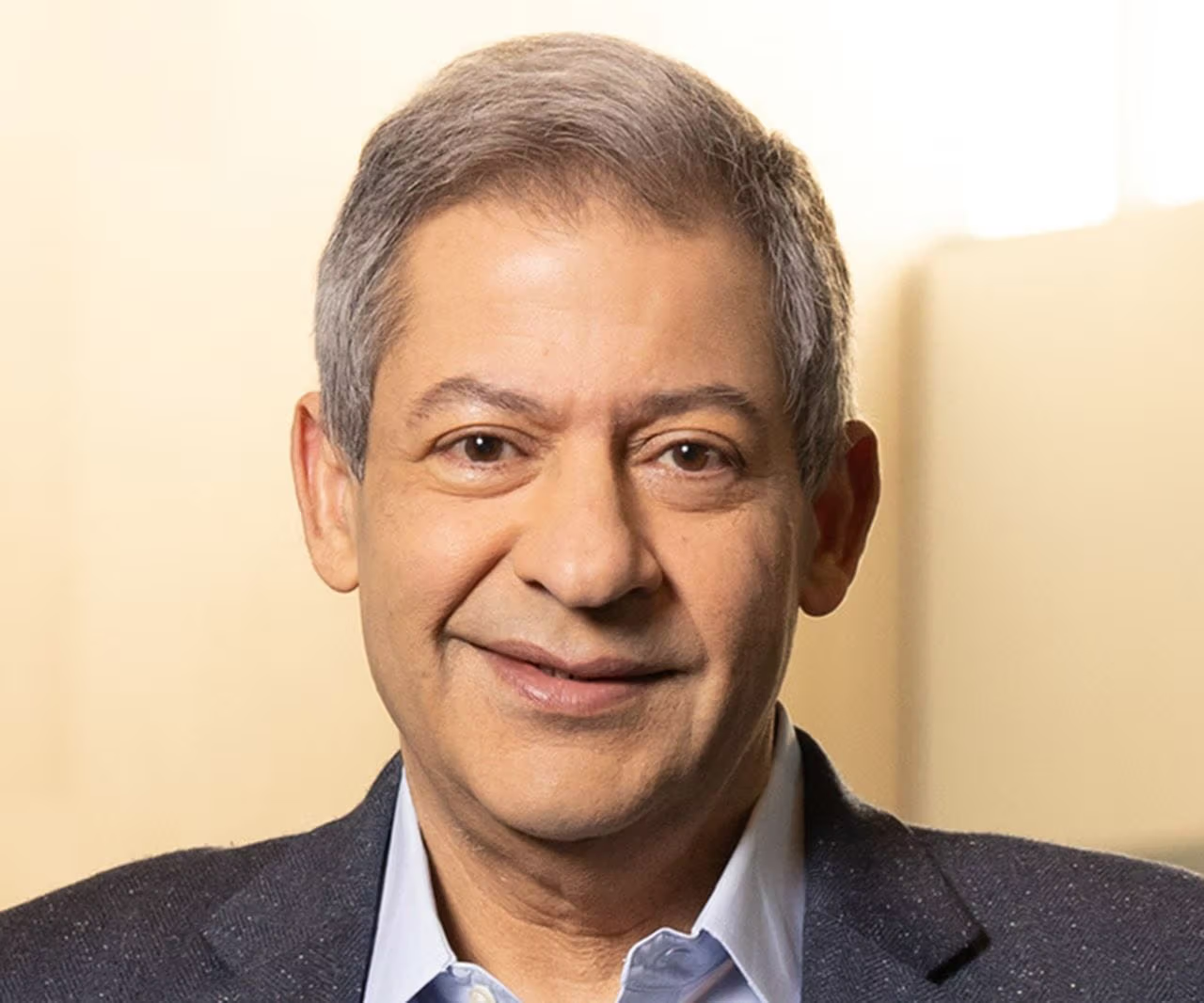
Biography
Noshir Contractor is the Jane S. & William J. White Professor of Behavioral Sciences at Northwestern University, investigating how networks form and perform. He is a Fellow of the Academy of Management, the International Communication Association, the Network Science Society, the American Association for the Advancement of Science, and the Association for Computing Machinery.
Abstract
This talk examines how AI is transforming scientific research through two paradigm shifts: changes in research objects (algorithmically infused societies) and research conduct. Exploring AI's evolution from substitution to enlargement and reconfiguration, Contractor demonstrates how collaborative intelligence, combining AI, domain experts, and technical specialists, will fundamentally reshape scholarly work.
[Theme #1 Shaping The AI-Empowered Future]
AI-Powered Future of Research
10:20 - 10:50 a.m.
V.S. Subrahmanian
McCormick School of Engineering, Northwestern Network for Collaborative Intelligence [NNCI] Co-Director, Northwestern University
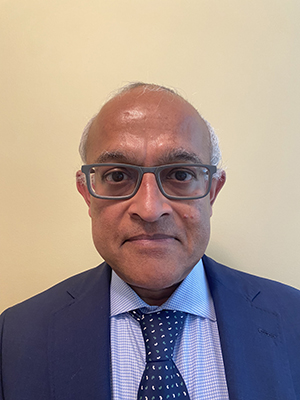
Biography
V.S. Subrahmanian is the Walter P. Murphy Professor of Computer Science, Head of the Northwestern Security & AI Lab (NSAIL), and Co-Director of Northwestern Network for Collaborative Intelligence (NNCI). A world leader in AI, he has pioneered the design of AI for enhancing global security. He has spoken previously at prestigious forums such as Capitol Hill, the UN, and the Mumbai Stock Exchange. His work has been featured in numerous top scientific journals and major news outlets.
Abstract
AI is dominating the landscape of science. Whether in the fields of computing or drug discovery or materials synthesis, AI models are revolutionizing how research is done. This talk will highlight how AI is revolutionizing the fields of protein synthesis, design of specialized materials, and global security. This talk will also address some of the risks posed by AI and how AI itself can be used to mitigate such risks.
[Theme#2: AI For a Better World?: (AI and (Dis)Information)]
From AI Sloperations to Slopaganda: How is AI Changing Disinformation?
10:50 - 11:20 a.m.
Marc Owen Jones
NU-Q Communication Program
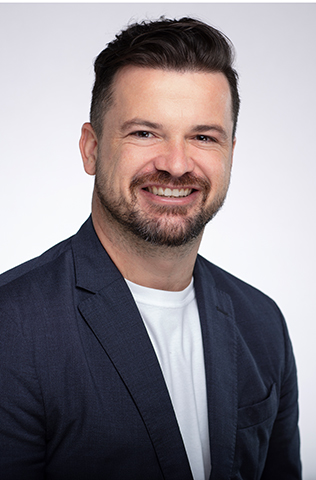
Biography
Marc Owen Jones is an Associate Professor of Media Analytics at Northwestern University in Qatar, where he specializes in investigating disinformation campaigns and techniques of digital authoritarianism in the Middle East. He is the author of several books, including Digital Authoritarianism in the Middle East (2022; Hurst/Oxford University Press) and Political Repression in Bahrain (2020: Cambridge University Press).
Abstract
AI is revolutionizing disinformation through sophisticated deepfakes, automated content generation, and personalized targeting at unprecedented scale. "AI slop"—low-quality generated content—enables mass "sloperations" and "slopaganda" campaigns that flood information spaces with misleading material. This analysis examines how AI and AI slop are being deployed in real-world disinformation campaigns today.
Networking & Lunch
11:20 a.m. - 12:50 p.m.
[Theme#3: AI and Creativity (Transformative Impact of AI on Media Entrepreneurship)]
Transformative Impact of AI on the Future of K-Content and Entertainment Industry
1:00 - 1:30 p.m.
Young Cha
CEO, ODK Media
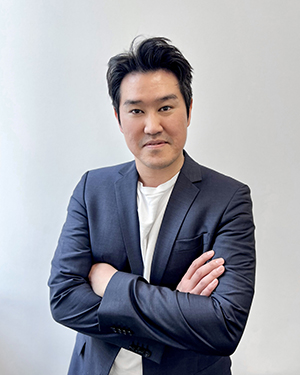
Biography
Young Joon Cha is the Co-Founder and CEO of ODK Media, Inc., a leading global digital media company specializing in the distribution of Asian content across OTT and FAST platforms. With over two decades of industry experience, he has built over 320 strategic partnerships in 36 countries, advancing multicultural entertainment through innovation and global collaboration.
Abstract
How is AI impacting the media and entertainment world today? AI is transforming the production, distribution, and monetization of K-content. In this session, Cha’s talk will explore how generative AI, AI-powered localization and publishing are redefining the globalization of K-content, and will share field experience to help creators, IP holders, and platforms thrive in the rapidly evolving, AI driven media and entertainment industry.
[Theme#3: AI and Creativity (Entrepreneurs’ Use of GenAI)]
Entrepreneurs’ Application of AI in Producing Viral Social Media Content: A Case Study on Instagram Reels and ChatGPT
1:30 - 1:50 p.m.
Faculty Mentor: S. Venus Jin (Associate Dean for Education; AIM-Lab AURORA Mentor)
Speaker: Shugyla Karshygakyzy (AIM-Lab AURORA Grantee)
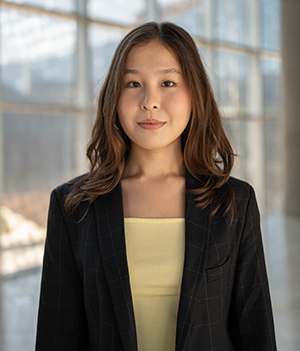
Biography
Shugyla Karshygakyzy is a junior at Northwestern University in Qatar and an AURORA grantee. Her work explores the intersection of social media, AI, and automation, with a focus on how generative tools like ChatGPT are reshaping storytelling in the digital age. She’s especially interested in creative strategy and platform innovation.
Abstract
This talk explores how entrepreneurs are using generative AI, especially ChatGPT to create more engaging Instagram Reels. Using a mixed-method case study, it compares performance before and after AI adoption. The findings show that when used intentionally, AI boosts efficiency and reach without losing authenticity, linking innovation theory to social media storytelling.
Recess
1:50 - 2:00 p.m.
[Theme#3: AI and Creativity (AI-Powered Docudrama Production)]
Beyond the Trope: Cinematic Creativity in AI-Powered Docudrama Production
2:00 - 2:30 p.m.
Spencer Striker
NU-Q Communication Program; AIM-Lab Faculty Affiliate
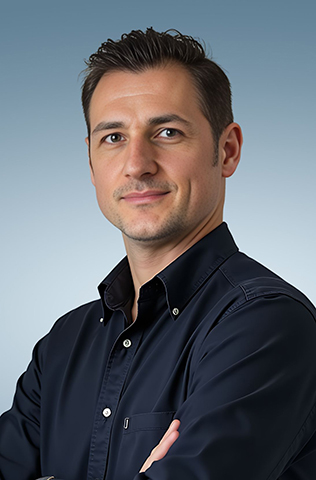
Biography
Spencer Striker, PhD, is Professor of Digital Media Design at Northwestern University Qatar and a leading innovator in digital learning design. He creates award-winning immersive educational experiences, including Empires & Interconnections, Plague of Athens VR, and Chaos Corp. Troll Farm Simulator, by blending narrative design with game-based learning and AI-powered animation.
Abstract
This presentation showcases the creative workflow for “Legacy of Light,” an AI-animated docudrama on the Islamic Golden Age, funded by the Doha Film Institute. It confronts generative AI’s tendency toward repetitive, trope-heavy visuals by using “cinematic deconstruction”; surreal, metaphorical concepts; and a signature mood board called Poetic Noir Realism to inspire original, cinematic imagery for compelling narrative animation.
[Theme#3: AI and Creativity (AI-Powered Education Technology)]
Human-Centered AI Design and Responsible AI for Younger Generations
2:30 - 3:00 p.m.
Shahzad Ahmed
Co-Founder, Hoja AI
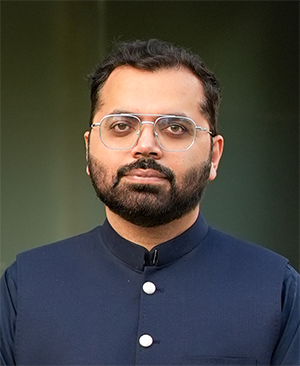
Biography
Shahzad Ahmed designs learning experiences where AI meets empathy. As Co-Founder of Hoja AI, he builds tools that inspire and protect younger learners, especially in the Global South. A member of EDHEC University’s Alumni Board, he champions responsible innovation that balances technology’s promise with the needs and voices of real communities.
Abstract
What happens when AI meets the classroom in places where resources are scarce, but creativity is abundant? Shahzad Ahmed shares stories from the frontlines of designing AI learning experiences for young people especially in the Global South, showing how ethics, empathy, and design thinking can turn technology into a tool for opportunity.
[Theme#3: AI and Creativity (AI.Vant-Garde)]
AI.Vant-Garde: Reimagining Creativity at the Intersection of Art and AI
3:00 - 3:30 p.m.
Jesse Payne
VCU-Q
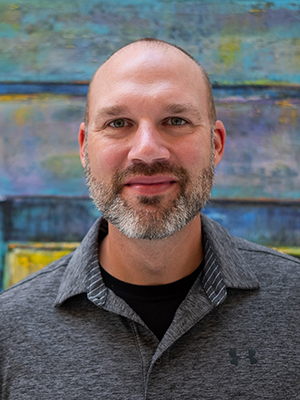
Biography
Jesse Payne is an Associate Professor at VCUarts Qatar, where he leads the Drawing Curriculum and explores the intersection of art, technology, and education. His current work integrates generative AI tools such as ChatGPT, MidJourney, and Runway ML, fostering hybrid creative processes and preparing artists for an AI-driven future.
Abstract
This talk introduces AI.Vant-Garde, a vision for integrating AI into art and design education. Through hybrid workflows that combine traditional methods with generative tools like MidJourney and Runway ML, Jesse Payne demonstrates how AI amplifies human creativity, transforming artistic practice, pedagogy, and the future of cultural production in a rapidly evolving digital landscape.
[Theme#3: AI and Creativity (Transformative Impact of GenAI on Writing)]
Typewriters Ate My Skull Stew: Practical Gen-AI Transformations for the Writing Classroom
3:30 - 4:00 p.m.
Sam Meekings
NU-Q Liberal Arts Program; AIM-Lab Faculty Affiliate
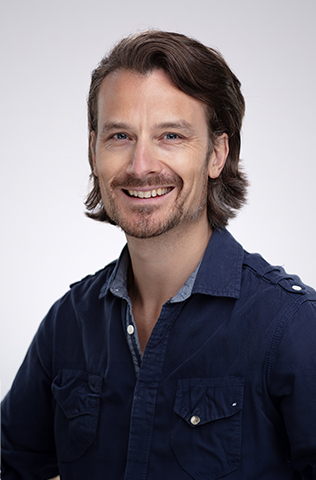
Biography
Sam Meekings is an Associate Professor of Creative Writing. His novel Under Fishbone Clouds was called “a poetic evocation of the country and its people” by the New York Times, and his new book Wonder & Loss: A Practical Memoir for Writing about Grief will be published in October.
Abstract
This presentation provides an adaptive framework for responding to the changes generative AI is enacting upon students and their writing. It explores various practical and pedagogical approaches to transforming how we discuss, model and teach writing, focusing on reflective and analytical strategies for using generative AI in the classroom.
Interactive Poster: "Localizing Microsoft Cloud: – AI-Driven Strategic Communication Campaign
4:00 - 4:30 p.m.
Faculty Mentor: Mohammed Ibahrine (Journalism and Strategic Communication Program)
Biography
Mohammed Ibahrine is a Professor of Strategic Communication in the Journalism and Strategic Communication Program at Northwestern University in Qatar. Ibahrine joins Northwestern Qatar from the American University of Sharjah (AUS), where he served as professor in the College of Arts and Sciences and coordinator of the Innovation and Entrepreneurship Program in the School of Business and Administration (SBA). Ibahrine is a social scientist committed to interdisciplinary research on technology, business, and human interaction in cultural, political, social, and economic contexts. He won several teaching, research, and creative awards and has published in leading peer-reviewed journals, including Journalism Practice, Online Information Review, Asian Studies, and Religions.
Speakers: Maureen Wu, Lama Turki Al Khater, Maryam Rubaih Al Kubaisi
Biography
Maureen Wu is a Communication student at Northwestern University in Qatar, with a minor in Media and Politics. Her work explores the use of AI in developing original visual styles and enhancing creative concepts. She is particularly interested in leveraging AI to improve efficiency in campaign and content creation amid today’s saturated media landscape. Lama Al-Khater is a Communication student at Northwestern University in Qatar, with minors in Strategic Communication and Film & Design. Her work explores how AI and storytelling shape branding and cultural narratives. She’s particularly interested in how visual media and AI intersect to express themes of identity and innovation. Maryam Al-Kubaisi is a Communication student at Northwestern University in Qatar, minoring in Strategic Communication and Film & Design. Her work explores the intersection of technology, branding, and cultural relevance. Through projects like the Microsoft Cloud Campaign, she highlights how local identity can shape AI narratives and digital transformation.
Abstract
This student-led project focuses on an AI-driven campaign promoting Microsoft Cloud in Qatar. It demonstrates how branding strategies can effectively localize global technologies by emphasizing cultural values, data sovereignty, and digital transformation. The project explores how strategic communication can bridge innovation and identity in public-facing campaigns targeting enterprises, small and medium-sized businesses (SMBs), and government entities.
Networking & Afternoon Tea
4:30 - 5:00 p.m.
